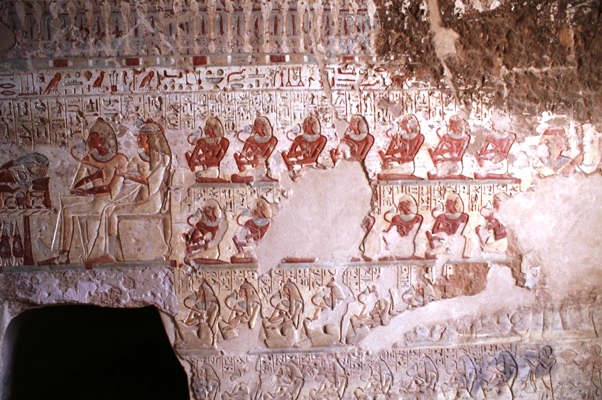
2025 Sally L.D. Katary Memorial Lecture
The 2025 Sally L.D. Katary Memorial Lecture will be held 31 May. For details, Click Here
JSSEA 50 now online
Members can now log in and download a colour PDF copy of JSSEA 50 (2023-2024)
There is also an index of volumes I to XLVIII now available and freely downloadable from here.

After having known a period of economic and political prosperity during the New Kingdom (-1550 to -1069) Egypt now has to face during the 21st dynasty a period of instability characterized by a fragmentation of central power. Thus, the pharaoh maintains control of the northern part of Egypt while the great priests of Amun seize power in the south. This shift in the structure of power leads to a series of changes in internal and external politics. While diplomatic relationships were once regulated by strict rules and, most of all, by the pharaoh only, it is only normal that the pharaonic ideology has to adapt to the new situation. It is possible to observe one of those modifications when studying matrimonial unions. With the decentralisation of power, we can see a change in the way political alliances through marriages are conducted. Through this lecture, we will elaborate on the different ways those changes occurred during the 21st dynasty, both on internal and external diplomatic matrimonial unions. To do so, we will mainly explore the unions between daughters of the northern pharaohs with the great priests of Amun in the south, and the particular case of a an Egyptian pharaoh’s daughter that came to marry the king of Israel, Solomon. Finally, through this lecture, we will also question how many see this period in Egyptian history as one of lost of power and propose that we shift this talk towards one about the resilience of the pharaonic ideology.
About the Speaker: Véronique Lacroix is a PhD student in art history at UQAM, directed by Valérie Angenot and in cotutelle with Paris Sorbonne University, directed by Pierre Tallet. She is particularly interested in the history of women in Ancient Egypt. After a Master’s thesis on the role of foreign women in Egyptian matrimonial alliances, her doctoral research now focuses on the study of female royal iconography and the borrowings, by royal women, of the traditional male pharaonic visual discourse. Winner of the prestigious Luc-d’Iberville-Moreau scholarship in 2021, she currently devotes her time to pursue her researches, alternating stays between Montreal and Paris. She a member of the multidisciplinary research “Projet Wedjat” directed by Valérie Angenot and, since 2018, she is also a member of the “Great Hypostyle Hall Project” under the direction of Jean Revez and Peter Brand.
Powered by iCagenda